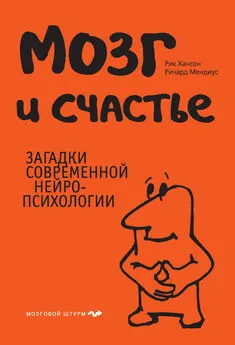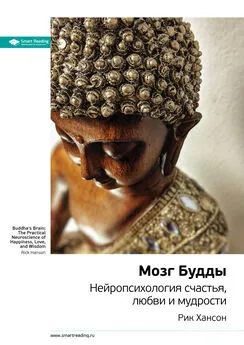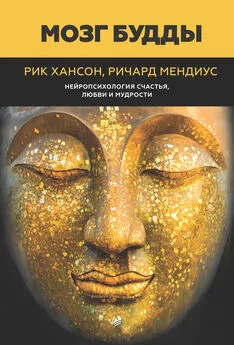Рик Хансон - Жизнь в стиле Fun. Что делает нас довольными, спокойными и уверенными
- Название:Жизнь в стиле Fun. Что делает нас довольными, спокойными и уверенными
- Автор:
- Жанр:
- Издательство:Питер
- Год:2019
- Город:Санкт-Петербург
- ISBN:978-5-4461-0840-4
- Рейтинг:
- Избранное:Добавить в избранное
-
Отзывы:
-
Ваша оценка:
Рик Хансон - Жизнь в стиле Fun. Что делает нас довольными, спокойными и уверенными краткое содержание
«Книга посвящена одному простому явлению: скрытой силе повседневных позитивных ощущений. Силе, способной перевоспитать мозг и таким образом изменить жизнь к лучшему. Я покажу вам, как превратить активное переживание приятных мгновений в вашу сильную сторону, достичь уверенности, свободы, комфорта, самоуважения и начать заботиться о себе. Речь не о тех моментах, когда вы чувствуете себя на миллион долларов. Я говорю о простых радостях жизни: ощущении уюта от любимого свитера, удовольствии от чашки кофе, теплоте общения с другом, удовлетворении от выполненного задания или любви вашего спутника.
Вы научитесь практике принятия хорошего. Если посвящать ей по десять секунд несколько раз в день, это укрепит состояние радости, спокойствия и внутренней силы. Наука, лежащая в основе этой практики, не относится к позитивному мышлению. И это не очередная программа по созданию позитивных чувств. То и другое не приносит пользы вашему мозгу. В нашей книге речь пойдет о трансформации мимолетного опыта в устойчивые положительные изменения вашей нейронной сети». — Рик Хансон.
«Жизнь в стиле Fun» учит нас избавляться от привычки видеть в первую очередь негатив, которая появилась в ходе эволюции. Она помогает наслаждаться позитивными вещами. Сделайте себе и своим близким лучший подарок: подарите эффективную стратегию по усилению радости с помощью практик, связанных с мозгом, одновременно простых и приятных.
Жизнь в стиле Fun. Что делает нас довольными, спокойными и уверенными - читать онлайн бесплатно ознакомительный отрывок
Интервал:
Закладка:
Это не утопия. Адаптивный режим мозга является нашим внутренним домом. Ради нашего блага и блага наших детей я надеюсь, что скоро мы все окажемся дома.
Библиография
Adler, Michael G., Nancy Fagley. Appreciation: Individual Differences in Finding Value and Meaning as a Unique Predictor of Subjective Well-Being // Journal of Personality. 2005. 73. P. 79–114.
Agren, 'Thomas, Jonas Engman, Andreas Frick, Johannes Bjorkstrand, ElnaMarie
Larsson, Tomas Furmark, Mats Fredrikson. Disruption of Reconsolidation Erases a Fear Memory Trace in the Human Amydala // Science. 2012. 337. P. 1550–1552.
Alvord, Mary Karapetian, Judy Johnson Grados. Enhancing Resilence in Children: A Proactive Approach // Professional Psychology: Research and Practice. 2005. 36 (3). P. 238–245.
Balter, Michael. New Light on Revolutions That Weren't // Science. 2012. 336. P. 530–561.
Baumeister, Roy, Ellen Bratlavsky, Catrin Finkenauer, Kathleen Vohs. Bad Is Stronger Than Good // Review of General Psychology. 2001. 5. P. 323–370. Becker, Craig M., Mary Alice Glascoff, W. Michael Felts. Salutogenesis 30 Years Later: Where Do We Go From Here? // International Electronic Journal of Health Education. 2010. 13. P. 25–32.
Berridge, Kent C. Food Reward: Brain Substrates of Wanting and Liking // Neuroscience Biobehavioral Review. 1996. 20 (1). P. 1–25.
Berridge, Kent C. Wanting and Liking: Observations from the Neuroscience and Psychology Laboratory // Inquiry. 2009. 52 (4). P. 378–398.
Berridge, Kent C., Chao-Yi Ho, Jocelyn M. Richard, Alexandra G. Di Feliceantonio. The Tempted Brain Eats: Pleasure and Desire Circuits in Obesity and Eating Disorders // ScienceDirect. 2010. 1350. P. 43–64.
Black, Paul H. The Inflammatory Response Is an Integral Part of the Stress Response: Implications for Atherosclerosis, Insulin Resistance, Type II Diabetes, and Metabolic Syndrome X // Brain, Behavior, & Immunity. 2003. 17. P. 350364.
Black, Paul H. Stress and the Inflammatory Response: A Review of Neurogenic Inflammation // Brain, Behavior, & Immunity. 2002. 16. P. 622–653.
Boehm, Christopher. Ancestral Hierarchy and Conflict // Science. 2012. 336. P. 844–847.
Bouton, Mark E. Context and Behavioral Processes in Extinction // Learning & Memory. 2004. 11. P. 485–494.
Bowles, Samuel. Did Warfare Among Ancestral Hunter-Gatherers Affect the Evolution of Human Social Behaviors? // Science. 2009. 324. P. 1293–1298. Bowles, Samuel. Warriors, Levelers, and the Role of Conflict in Human Social Evolution // Science. 2012. 336. P. 876–878.
Broadbent, Elizabeth, Arman Kahokehr, Roger J. Booth, Janine Thomas, John A. Windsor, Christina M. Buchanan, Benjamin R. L. Wheeler, Tarik Sammour, Andrew G. Hill. A Brief Relaxation Intervention Reduces Stress and Improves Surgical Wound Healing Response: A Randomished Trial // Brain, Behavior, & Immunity. 2012. 2012. 26 (2). P. 212–217.
Bryant, Fred B. A Four-Factor Model of Perceived Control: Avoiding, Coping, Obtaining, and Savoring // Journal of Personality. 1989. 57 (4). P. 773–797.
Bryant, Fred B., Erica D. Chadwick, Katharina Kluwe. Understanding the Processes That Regulate Positive Emotional Experience: Unsolved Problems and Future Directions for Theory and Research on Savoring // International Journal of Wellbeing. 2011. 1 (1). P. 107–126.
Bryant, Fred. B., Colette M. Smart, Scott P. King. Using the Past to Enhance the Present: Boosting Happiness Through Positive Reminiscence // Journal of Happiness Studies. 2005. 6. P. 227–260.
Bryant, Fred B., Joseph Veroff. Savoring: A New Model of Positive Experience. Mahwah, New Jersey: Lawrence Erlbaum Associates, Inc., 2007.
Burgdorf, Jeffery, Jaak Panksepp. The Neurobiology of Positive Emotions // Neuroscience and Biobehavioral Reviews. 2006. 30. P. 173–187.
Calder, Andrew J., Andrew D. Lawrence, Andrew W. Young. Neuropsychology of Fear and Loathing // Nature. 2001. 2. P. 353–363.
Campbell, Stephanie, Michael Marriott, Claude Nahmias, Glenda M. MacQueen. Lower Hippocampal Volume in Patients Suffering from Depression: A MetaAnalysis // American Journal of Psychiatry. 2001. 161 (4). P. 598–607.
Chida, Yoichi, Andrew Steptoe. Positive Psychological Well-Being and Mortality: A Quantitative Review of Prospective Observational Studies // Psychosomatic Medicine. 2008. 70 (7). P. 741–756.
Choi, Jung-Kyoo, Bowles, Samuel. The Coevolution of Parochial Altruism and War // Science. 2007. 318. P. 636–640.
Christoffel, Daniel J., Sam A. Golden, Scott J. Russo. Structural and Synaptic Plasticity in Stress-Related Disorders // Reviews in Neurosciences. 2011. 22 (5). P. 535–549.
Cohn, Michael A., Barbara L. Fredrickson, Stephanie L. Brown, Joseph A. Mikels, Anne M. Conway. Happiness Unpacked: Positive Emotions Increase Life Satisfaction by Building Resilience // Emotion. 2009. 9. P. 361–368.
Critchley, Hugo D. Neural Mechanisms of Autonomic, Affective, and Cognitive Integration // Journal of Comparative Neurology. 2005. 493. P. 154–166. Critchley, Hugo D., Yoko Nagai. How Emotions Are Shaped by Bodily States // Emotion Review. 2012. 4 (2). P. 163–168.
Cunningham, William A., Tobias Brosch. Motivational Salience: Amygdala Tuning from Traits, Needs, Values, and Goals // Current Directions in Psychological Science. 2012. 21 (1). P. 54–59.
Cunningham, William A., Tabitha Kirkland. The Joyful, Yet Balanced Amygdala: Moderated Responses to Positive But Not Negative Stimuli in Trait Happiness // Social Cognitive and Affective Neuroscience. 2013. April 5. e-pub ahead of print.
Cunningham, William A., Carol L. Raye, Macia K. Johnson. Neural Correlates of Evaluation Associated with Promotion and Prevention Regulatory Focus // Cognitive, Affective, and Behavioral Neuroscience. 2005. 5 (2). P. 202–211.
Decety, Jean, Philip L. Jackson. The Functional Architecture of Human Empathy // Behavorial and Cognitive Neuroscience Reviews. 2004. 3. P. 71–100.
Decety, Jean, Margarita Svetlova. Putting Together Phylogenetic and Ontogenetic Perspectives on Empathy // Developmental Cognitive Neuroscience. 2011. 2 (1). P. 1–24.
Diener, Ed, Micaela Y. Chan. Happy People Live Longer: Subjective WellBeing Contributes to Health and Longevity // Applied Psychophysiology. 2011. 3 (1). P. 1–43.
Duman, Ronald S., George K. Aghajanian. Synaptic Dysfunction in Depression: Potential Therapeutic Targets // Science. 2012. 338. P. 68–72.
Dusek, Jeffery A., Hasan H. Out., Ann L. Wohlhueter, Manoj Bhasin, Luiz F. Zerbini, Marie G. Joseph, Herbert Benson, Towia A. Libermann. Genomic Counter-Stress Changes Induced by the Relaxation Response // PLoS One. 2008. 3. e2576.
Ecker, Bruce, L. Hulley. Depth Oriented Brief Therapy: How to Be Brief When You Were Trained to Be Deep, and Vice Versa. San Francisco: Jossey-Bass, 1996.
Ecker, Bruce, Brian Toomey. Depotentiation of Symptom-Producing Implicit Memory in Coherence Therapy // Journal of Constructivist Psychology. 2008. 21 (2). P. 87–150.
Efferson, Charles, Rafael Lalive, Ernst Fehr. The Coevolution of Cultural Groups and Ingroup Favoritism // Science. 2008. 321. P. 1844–1849.
Emmons, Robert. Thanks! How the Science of Gratitude Can Make You Happier. New York: Houghton Mifflin Harcourt, 2007.
Emmons, Robert A., Michael McCullough. Counting Blessings Versus Burdens: An Experimental Investigation of Gratitude and Subjective Well-Being in Daily Life // Journal of Personality and Social Psychology. 2003. 84 (2). P. 377–389. Emmons, Scott W. The Mood of a Worm // Science. 2012. 338. P. 475–476. Esch, Tobias, George B. Stefano. The Neurobiology of Stress Management // Neuroendocrinology Letters. 2010. 31 (1). P. 19–39.
Fagley, Nancy. Appreciation Uniquely Predicts Life Satisfaction Above Demographics, the Big 5 Personality Factors, and Gratitude // Personality and Individual Differences. 2012. 53. P. 59–63.
Fehr, Ernst. Human Behaviour: Don't Lose Your Reputation // Nature. 2004. 432. P. 449–450.
Fehr, Ernst, Bettina Rockenbach. Human Altruism: Economic, Neural, and Evolutionary Perspectives // Current Opinion in Neurobiology. 2004. 14 (6). P. 784–790.
Feldman, Daniel. Synaptic Mechanisms for Plasticity in Neocortex // Annual Review of Neuroscience. 2009. 32. P. 33–55.
Feldman, Greg C., Jutta Joormann, Sheri L. Johnson. Responses to Positive Affect: A Self-Report Measure of Rumination and Dampening // Cognitive Therapy and Research. 2008. 32 (4). P. 507–525.
Folkman, Susan, Judith Moskowitz. Positive Affect and the Other Side of Coping // American Psychologist. 2000. 55. P. 647–654.
Fredrickson, Barbara. Positivity: Top-Notch Research Reveals the 3 to 1 Ratio That Will Change Your Life. New York: Three Rivers Press, 2009.
Fredrickson, Barbara L., Michael A. Cohn, Kimberly A. Coffey, Jolynn Pek, Sandra M. Finkel. Open Hearts Build Lives: Positive Emotions, Induced Through Loving-Kindness Meditation, Build Consequential Personal Resources // Journal of Personality and Social Psychology. 2008. 95 (5). P. 1045–1062.
Fredrickson, Barbara, Robert Levenson. Positive Emotions Speed Recovery from the Cardiovascular Sequelae of Negative Emotions // Psychology Press. 1998. 12. P. 191–220.
Fredrickson, Barbara L., Michele M. Tugade, Christian E. Waugh, Gregory R. Larkin. What Good Are Positive Emotions in Crisis? A Prospective Study of Resilience and Emotions Following the Terrorist Attacks on the U.S. on 9/11/01 // Journal of Personality and Social Psychology. 2003. 84 (2). P. 365–376. Fry, Douglas P. Life Without War // Science. 2012. 336. P. 879–884.
Gabbard, Glen O. A Neurobiologically Informed Perspective on Psychotherapy // British Journal of Psychiatry. 2000. 177. P. 117–122.
Gable, Shelly L., Harry T. Reis, Emily A. Impett, Evan R. Asher. What Do You Do When Things Go Right? The Intrapersonal and Interpersonal Benefits of Sharing Positive Events // Journal of Personality and Social Psychology. 2004. 87 2). P. 228–245.
Garavan, Hugh, Cara J. Pendergrass, Thomas Ross, Elliot A. Stein, Robert Risinger. Amygdala Response to Both Positively and Negatively Valenced Stimuli // Neuroreport. 2001. 12 (12). P. 2779–2783.
Юджин Джендлин. Фокусирование. М.: Корвет, 2016.
Germer, Christopher. The Mindful Path to Self-Compassion: Freeing Yourself from Destructive Thoughts and Emotions. New York: The Guilford Press, 2009. Gerstner, Wulfram , Henning Sprekeler, Gustavo Deco. Theory and Simulation in Neuroscience // Science. 2012. 338. P. 60–65.
Gilbert, Paul. The Compassionate Mind: A New Approach to Life's Challenges. Oakland, Calif.: New Harbinger Publications, Inc., 2010.
Gilbert, Paul. Introducing Compassion-Focused Therapy // Advances in Psychiatric Treatment. 2009. 14. P. 199–208.
Gogolla, Nadine, P. Caroni, A. Luthi, C. Herry. Perineuronal Nets Protect Fear Memories from Erasure // Science. 2009. 325. P. 1258–1261.
Gottman, John. Why Marriages Succeed or Fail: And How You Can Make Yours Last. New York: Simon & Schuster, 1995.
Читать дальшеИнтервал:
Закладка:



![Джейн Мэтьюз - Жизнь в стиле соло: как жить одному и наслаждаться этим [litres]](/books/1073568/dzhejn-metyuz-zhizn-v-stile-solo-kak-zhit-odnomu-i.webp)






